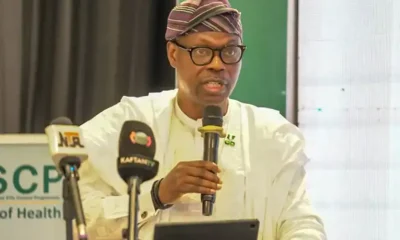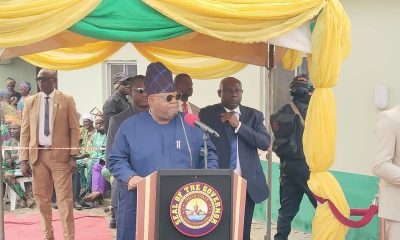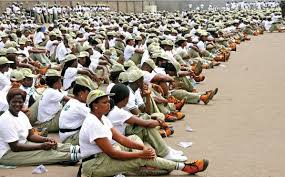Opinion
The Challenges Of Mobilizing Employment For The Youth In A Democratic Nigeria
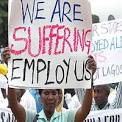
By Adunni Adesola
The importance of the youth agency is very fundamental due to the fact that they are expected to provide support for the aged members of the family. While articulation of youth struggles have been seen within the ideology of social youth movement that entails the perception of youth’s unequal and inequitable position in the society, their oppression and subordination vis-à-vis the rest of society gave rise to the ensuing commitment and struggle to rectify the status quo .
What is the situation of the youth agency in Nigeria? What is or are the gender experiences of poverty and risks generally as a result of poverty? What are the factors responsible for the high statistics of youth affected by unemployment and poverty in Nigeria? What steps have been taken to address the problem of youth unemployment and what are the outcomes? What is the history of Nigeria’s youth participation in labour force?
It is a fundamental fact that unemployment among the youth has remained unacceptably high, with sporadic increase in the level of poverty thereby giving rise to insecurity, a nascent feature that has dealt a deadly blow to the nation’s image, while it has severely dampened the country’s economic potentials in the area of distraction of government’s meager resources from productive public investment, bad climate for foreign investment and general business destabilization.
All these, combined with the global financial and economic crisis have worsened the situation that the Nigerian youth find themselves today. It is useful to note that empowerment or development of the individual is very crucial to both national security and economic development.
Over the years, however, Nigerian leaders have been observed to have taken some steps towards addressing the problem of both youth unemployment and poverty, bearing in mind the constructive contribution to the project of national security and economic development by the youth agency.
Paradoxically, viewing the state of the Nigerian youths in recent times, it is clear that there is absence of any conscious attempt by the democratic Nigerian state to judiciously harness, mobilize as well as channel the energies of the youths for sustainable economic development that will result to lasting general security. It will also not be an exaggeration to observe that efforts at youth empowerment have been meted with both levity and laxity.
Indeed, there has never been any strong zeal to empower the youth in terms of capacity building .i.e. strengthening their capacity to determine their values as well as their priorities which constitute the basis for development.
This is in view of the fact that the present youth unemployment in Nigeria as it is today has it roots in the country’s economic development policies.
According to the National Directorate of Employment (NDE), cited by Ikebude (2008), “the absence of well-articulated policies that guide strategies and programs is the reason why the national goal of unemployment reduction has not yet been achieved in any substantial way”. Consequently most governmental efforts with regards to youth unemployment via youth policies since independence has “fizzled out amidst non-commitment in their implementation and changes in regime type”.
The Integra Leadership Foundation researchers has however found out that, in 1984, the Federal Government adopted a National Youth Policy whose objectives include:
• Involvement and participation of Nigerian Youth in the social, economic and cultural development of Nigeria.
• Fostering of national and international understanding and unity among youth.
• Inculcate virtues of patriotism, discipline, selfless service, honesty and leadership in the youth with a view to ensuring a purposeful sense of direction for the nation.
• Provision of opportunities for vocational training for schooled and unschooled youth oriented primarily towards self employment and self-reliance.
• Encouragement of active complementary role of voluntary youth organizations for the overall development of Nigerian Youth (Momoh, 2000).
All the above lofty objectives notwithstanding, the non-commitment to the policy left nothing for the improvement in the condition of wellbeing of the Nigerian youth.
In the year 2001 also, the Obasanjo regime came up with new policy termed “Youth Empowerment Scheme (YES), an offspring of the National Poverty Eradication Programme (NAPEP). The programmes embedded in this policy include:
• Capacity Acquisition Programme.
• Mandatory Attachment Programme.
• Micro Credit Programme, etc.
Thus, the upsurge in the security challenges in Nigeria today are the off-shoot of the inherent frustration and desperation faced by the typical Nigerian youth which has given rise to the insane behaviour of the youth population, 43% of whom are involved in armed robbery operations, drug peddlers, area boys, Niger Delta Militants, and the most recent being the Boko Haram.
All over the nation, youth involvement in ethno-religious crises have become unprecedented in the history of Nigeria. Nigerian citizens can no longer live in peace. For instance, the various bomb blasts in Maiduguri, Kaduna, Kano, Abuja, Suleja, Plateau, Yobe, Okene, etc, in recent times are cases in point. Infact the year 2012 – 2017 has been marked with serious security problems across the hitherto peaceful nation.
Thus INTEGRA LEADERSHIP FOUNDATION has discovered that”national development” is absolutely impossible in the absence of real role models, and that is why we serve as factory to create leading leaders who will bring the expected change to reduce this suffering in Nigeria.
Consequently, when youths are not well equipped or totally not equipped to participate in socio-economic development of the nation, two issues may result, negative or positive outcomes.
In the democratic Nigerian scenario, the negative outcome has taken root, thereby creating serious macroeconomic challenges in all ramifications for the nation as a result of bad governance, i.e. “the inability of state actors, institutions and agencies to (judiciously) utilize public resources and authorities to ensure the protection of lives and properties as well as the delivering of social services or public goods necessary for the advancement of human security and development”.
As way of moving forward therefore, the leaders must as a matter of responsibility undertake the following steps.
Firstly, for Nigeria to attain peace and general security, the need to transit from the narrower concept of National Security to a broader concept of Human Security cannot be overemphasized.
The role of the youth agency in this transition is very crucial and urgent. This also calls for a holistic and integrated approach to youth matters requiring integrated sectoral and holistic intervention through the acknowledgement of the diversity, socio-cultural and environmental factors as well as historical antecedents, religion and tradition of Nigeria and Nigerians.
This is in view of the fact that in the global arena, human security has gone beyond the threats of “weapons of mass destruction” to the threat of youth unemployment and poverty.
Secondly, one of the most unfortunate aspects of life in a democratic Nigeria is the lip-service being paid to macroeconomic policies and programmes that directly affect the youth. For instance, cases of NAPEP, NDE, etc, all targeting the youths never really achieved their set objectives. Both in concept and practice, it succumbed to the usual machinations of elitism which (has) characterized all socio-economic policies in Nigeria in recent times.
Thirdly, the need to address the unemployment and poverty scourge plaguing the nation’s youth despite her island of stupendous wealth is another area seriously requiring both urgent and permanent solution. While the government has not been sleeping over this, it is however sad to note that most of the approaches adopted so far are as usual fire brigade in nature.
There should be an honest interest and the political will to actualize all poverty alleviation programmes already on ground, like NAPEP. Fourthly, there is no doubt about the fact that history has shown times without number that the nature, quality and commitment of leadership are the most essential antidote towards sustainable economic growth and development.
Consequently when judiciously co-opted, the Nigerian youth could make meaningful contribution. The inability of the nation to tap the potentials of her youth is due to institutionalized corruption which has negated all attempts, thus destroying efforts at fighting unemployment, poverty, social injustice, a scenario that has negated opportunities for economic reforms and the collapse of institutions, etc.
In the light of this scenario, there should be a discontinuation of the current political manipulation as well as the negative economic instrumentalization of youth groups in favour of gainful employment both by the government and the private sector towards eradication of youth poverty and the prevailing atmosphere of alienation and dejection by the Nigerian youth.
Fifthly, the need for the government to create conducive environment for sound, judicious and effective economic management policies cannot be overemphasized. In the light of this, there should be a clear clarification of the nature and functions of macroeconomic policies and their direction.
In this respect, policy goals must be specific with regards to orientations, targets and operations, while eliminating the room for contradiction and duplications.
In addition, macroeconomic policies should be devoid of unnecessary bureaucratic sentiments, while competent hands with human face(s) should be entrusted in order to bring overall improvement in the general human wellbeing.
The government should avoid a situation of subjecting macroeconomic policies to political party sentiments and affiliation by strictly basing all policy-making positions on merit. In this respect, transparency and accountability must be the watch word, while coordination as well as harmonization of policies at all levels of government (Federal, State and Local) should be favored in order to bring about maximum positive externalities.
There should be effective institutions for political stability as well as management of conflicts. In the light of this, the need to re-visit the nation’s Constitution becomes imperative. There should be a good Constitution clearly spelling out the rule of law regarding the fundamental rights of all and sundry, irrespective of cultural or religious background, etc. In this regard, the need for a combination of both orthodox and heterodox approaches through participatory method cannot be overemphasized and the youth must be given equal opportunity to contribute to this effort.
Finally, if Nigeria is going to maintain her “giant” status in Africa in particular and among the committee of great Nations in general by year 2019 and beyond, she cannot afford to ignore the urgent need to include the youth agency in her match towards national security and sustainable development.
The challenge of effective and mainstreaming of youth participation must go beyond mere political rhetoric and superficial inclusion to take cognizance of crucial issues relating to the social norms and value system of the Nigerian societies. For instance there should be genuine efforts on the part of policy makers to promote equitable growth, generate employment, raise incomes, improve agricultural production, promote and expand informal sector livelihood.
In this regard, the leaders must not only be seen to be serious, but must be totally committed by matching words with action, bearing in mind that a destroyed youth agency is a jeopardized future, while they (leaders) should stop preaching and practicing monologue and autocracy in favour of dialogue and true democracy.
-
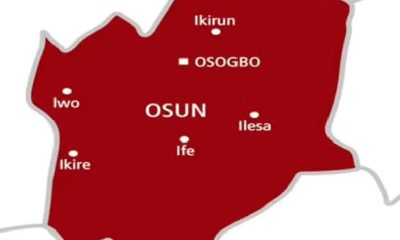
 Opinion5 days ago
Opinion5 days agoThe Clout-chasing Dipo Awojide By Comrade Da’Peace
-

 News4 days ago
News4 days agoRamadan, Lent: Shettima Calls For National Unity And Compassion
-

 Opinion4 days ago
Opinion4 days agoReinventing Osun’s Economy Through Dagbolu Intl. Trade Centre: From Quiet Market Lessons To Regional Trade Revolution By Adeboye Adebayo
-
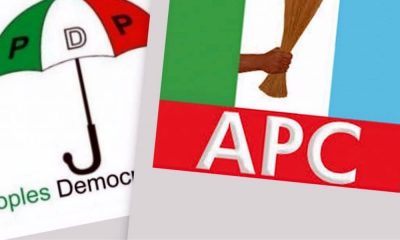
 News4 days ago
News4 days ago‘Wike Factor’: Another PDP Chairmanship Candidate Steps Down For APC In FCT



